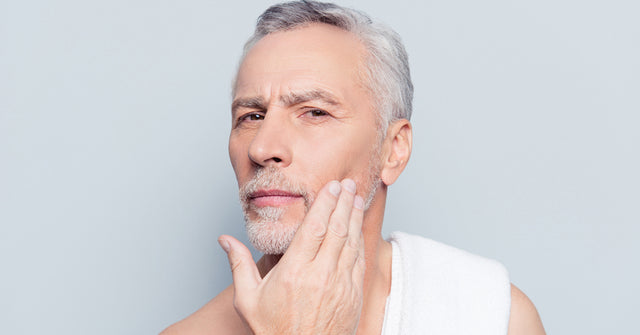Face masks are an important part of a regular skincare routine. They are occlusive and serve as a protective seal that traps moisture and locks hydration on the skin. Many women use face masks not only for their benefit but also for the calming and relaxing effect. The results of an online study show that 58% of the respondents find wearing a face mask relaxing, 73% of women[1] refer to face mask time as “me time,” and 74% consider applying face masks an important key to self-care.
These beauty items are easily sourced as they are available online, in drug stores, and in beauty outlets. However, some homemade preparations are more practical and keep you from spending too much money. This article brings you 10 hydrating face mask recipes you can make from ingredients you probably have in your kitchen.
What Provides Most Hydration?
In skincare, hyaluronic acid is among the most hydrating ingredients. Hyaluronic acid is known for its marvelous capacity to bind and retain water molecules. Evidence shows[2] that hyaluronic acid successfully decreases signs of aging, thanks to its hydrating properties. Many moisturizing creams, ointments, lotions, and serums contain hyaluronic acid to help reduce dryness and rejuvenate your look.
However, skin hydration goes beyond skincare itself. One of the most important aspects of hydrated skin is water intake. Studies confirm[3] that water intake increases skin hydration and reduces skin dryness. Drinking enough water improves skin physiology and keeps it healthy.
Most importantly, a proper skincare routine hydrates the skin the most. The skin is exposed to the sun’s damaging UV rays and environmental influences such as pollution, all of which take their toll on the skin’s physiology. Skincare routine tackles these factors and allows your skin to rest and remain nourished and protected during the day and night.
Causes of Skin Dehydration
Skin dehydration occurs when the skin loses more water than it takes in. Several factors[4] contribute to skin dehydration, including:
- Environmental conditions: harsh weather conditions[5] such as wind, cold, and low humidity can strip moisture from the skin and cause dryness.
- Insufficient water intake: Not drinking enough water can lead to skin dehydration.
- Harsh skincare products: using products with alcohol, fragrances, and other harsh chemicals can disrupt the skin’s natural barrier and lead to dryness. Besides harsh skincare ingredients, rough sponges, washcloths, and exfoliating products can also cause skin dehydration.
- Hot shower/bath: prolonged exposure to hot water strips the skin of its natural oils and contributes to dehydration.
- Aging: as people age, the skin’s ability to retain moisture reduces, thus causing dryness.
- Air conditioning and heating: They decrease air humidity levels and cause the skin to lose moisture.
- Medical conditions: eczema, psoriasis, and conditions such as thyroid disease and diabetes[6] affect the skin’s hydration levels.
- Diet: high consumption of processed foods and low fatty acids and vitamins can affect the skin and cause dryness.
Hydrating Skin from the Inside Out
Dry skin is rough to the touch, tight, dull, and lifeless. Here’s how to rescue your skin and improve hydration inside and out:
- Drink plenty of fluid: water is crucial for hydrated skin; it enhances the skin’s physiology. Make sure you stay hydrated throughout the day.
- Eat hydrating foods: enrich your diet with foods high in water content. These include watermelons, oranges, and cucumbers.
- Eat healthy fats: Eat foods abundant in Omega-3 fatty acids to maintain the skin’s moisture barrier. The foods you eat influence your skin’s physiology and hydration levels.
- Use humectants: products containing ingredients such as hyaluronic acid can draw moisture into the skin.
- Hydrating masks: applying a hydrating face mask can nourish your skin, making it soft and smooth.
- Try hydrating spa treatments: while a good skincare routine is important, your skin needs more care and pampering. Spa treatments are useful. Spas and estheticians provide various skincare treatments utilizing specialized techniques and ingredients you can’t achieve at home.
Skin Hydration Dos and Don’ts
Hydrated, silky, youthful skin isn’t mission impossible. These dos and don’ts should help you keep your skin hydrated:
- DO drink eight glasses of water a day
- DO apply a rich moisturizer such as Infusoderm Deep Hydration Daily Moisturizer to revitalize,
- DO limit showers to 5-10 minutes and opt for lukewarm water
- DON’T over-exfoliate
- DO wear sunscreen to protect your skin against sun’s UV rays
- DON’T smoke because it further dehydrates your skin
- DO manage stress levels properly
- DO review your skincare routine to replace drying products with hydrating counterparts
- DO apply face masks twice a week to hydrate your skin
10 Recipes for Hydrating Masks
While there are many well-priced hydrating facial masks on the market, concocting your own is fun and can save you more money over time. Moreover, you will be assured that the ingredients are safe since most of them are common items in your kitchen pantry.
1. Milk facial masks
Milk contains lactic acid, which gently exfoliates dead skin cells[7]. It promotes cell renewal and supports the hydration of the skin. Moreover, the fats and proteins in milk nourish and soften your skin. Use a hydrating face wash and pat your face dry with a towel before applying a mask. You can make a facial mask by combining ¼ cup of powdered milk with enough water to create a thick paste. Apply the mask onto your face, let it completely dry, and wash it off. Another option is to combine equal parts of whole milk and honey.
2. Oatmeal facial masks
Oatmeal contains antioxidants and anti-inflammatory properties that nourish and protect your skin. This facial mask soothes your skin and leaves it soft and lightly moisturized without the clogged and heavy feeling.
You can make an oatmeal facial mask by combining ½ cup hot (not boiling) water and 1/3 cup oatmeal. Once oatmeal and water settle down for 2-3 minutes, add 2 tablespoons of plain yogurt, 2 tablespoons of honey, and 1 small egg white. Combine thoroughly, apply the mixture to your face, and rinse in 10 to 15 minutes.
3. Mayonnaise facial masks
Mayonnaise is rich in proteins and fats that deeply hydrate and nourish the skin. As a result, your skin becomes soft and smooth. Emollients in mayonnaise add moisture to chapped and rough skin. All you need to do is apply mayo over your face and leave it on for 20 minutes before rinsing with cool water. Follow it up with a hydrating face serum and a rich moisturizing cream.
4. Yogurt facial masks
Yogurt facial mask delivers multiple benefits, including hydration and skin brightening. It also tones your skin, increases its elasticity, and reduces signs of aging, such as fine lines and wrinkles. Yogurt face masks can fight acne, too. Use a clarifying cleanser before applying your yogurt facial mask. The Dermpura – Solvaderm is a high-quality facial cleanser that removes all impurities, gives you a blemish-free complexion, and tones your skin.
Because yogurt is versatile, you can apply it to your face and leave it for 20 minutes before washing it off. Another option is to make a mask from 1 teaspoon of plain yogurt, the juice from a quarter of an orange, some of the orange pulp, and 1 teaspoon of aloe vera. Apply the mask and wash it off in 5-10 minutes.
5. Mustard facial masks
Mustard seeds are rich in antioxidants and glucosinolates, which contain sulfur for antibacterial effects. This facial mask is particularly useful for skin sensitivity, inflammation, and acne. Apply mild yellow mustard onto your face and rinse it with warm water after 15 minutes. However, you shouldn’t use this face mask frequently because it may irritate the skin.
6. Lemon facial masks
Lemon is abundant in vitamin C and citric acid. Vitamin C functions as an antioxidant and exhibits a hydrating effect[8]. Citric acid has anti-aging effects and may help reduce the visibility of photodamage. A lemon facial mask can brighten your complexion and give you a youthful look.
You can make a mask by combining the juice from 1 lemon with ¼ cup of olive oil or sweet almond oil. Another option is to combine the juice of ½ lemon with a tablespoon of honey. Whichever you choose, apply it to your face and rinse in 15 minutes.
7. Egg facial masks
Egg whites firm and tighten the skin, whereas egg yolks moisturize and nourish. For hydrating effects, separate the egg whites and use beaten yolks only. If your skin is normal, you can use the whole egg. Apply egg onto your face and rinse after 30 minutes.
8. Strawberry yogurt facial masks
Strawberries are a good source of antioxidants such as vitamin C, which can brighten and hydrate your skin. In combination with yogurt, this mask can exfoliate and moisturize your skin. You will notice changes in the skin’s texture as it becomes softer and smoother.
Make sure to mash several ripe strawberries with 3 tablespoons of ground almonds, add 2 tablespoons of plain yogurt, and mix. Apply the mask and rinse after 20 minutes.
9. Yeast facial masks
Yeast is rich in B-complex vitamins and may help balance the skin’s natural oils, hydrate, and promote a healthy complexion. This mask exhibits anti-inflammatory properties, too. A yeast facial mask is recommended for younger people with oily skin. You need a 0.25-oz package of dry yeast, which you will combine with 3 drops of lemon juice and 2 teaspoons of water. Combine all the ingredients, apply the mask to your face, and let it sit for 15 minutes before you wash it off.
10. Honey facial masks
Honey is a natural humectant that draws and retains hydration in your skin. Plus, honey is known for its anti-inflammatory and antibacterial effects, which are crucial for nourished and hydrated skin or a youthful glow. Evidence confirms[9] that honey keeps skin younger and slows down the formation of wrinkles.
There are plenty of honey facial mask recipes to keep your skin hydrated. For example, you can combine raw honey with ground turmeric and lemon juice. Another option is to heat 2/3 cup instant oats in ½ cup hot water for 5 minutes. In the meantime, make a puree from ½ cored apple, 2 tablespoons of yogurt, 2 tablespoons of honey, and one egg white. Add oatmeal to the mixture, combine thoroughly, and apply to your face for 15 minutes.
Frequently Asked Questions
How do I hydrate my skin more?
You can hydrate your skin more by drinking enough water while limiting alcohol and caffeine consumption. Opt for a gentle cleanser that eliminates impurities and nourishes your skin at the same time. Focus on skincare products containing hyaluronic acid, ceramides, lipids, and fatty acids. Apply a hydrating sleep mask before bedtime and protect your skin from the sun with a day cream containing SPF during the day.
How long does it take to rehydrate skin?
The exact timeframe for skin rehydration depends on the severity of dryness. Skin with mild dehydration generally recovers within a few days of consistent moisturizing and fluid intake. Severely dehydrated skin may take several weeks to rehydrate. It’s crucial to stick to your skincare regimen and lifestyle adjustments.
What is the best natural hydration for the skin?
Two of the best natural skin hydration techniques are drinking enough water and using a hydrating face mask containing ingredients such as honey, aloe vera, and coconut oil. Face masks are available in drugstores or online, but you can also make incredibly effective masks with ingredients in your kitchen.
How can I deeply hydrate my skin at home?
Deep skin hydration at home is best achieved by using highly nourishing skin products and doing a lifestyle check. Getting enough sleep, proper stress management, opting for gentle products, avoiding long, hot showers, and staying hydrated contribute to healthy, well-hydrated skin. Skin hydration requires a multifaceted approach beyond skincare products; it extends to things you do daily.
What is the best thing to use to moisturize extremely dry skin?
A thick moisturizer and a rich facial mask can help overly dry skin to recover. As mentioned, simple home recipes can be your best hydrating face masks to nourish your skin. A humidifier is also useful because it maintains moisture in the air and helps you rehydrate your skin. Prioritize skincare products that are specifically created for moisturizing dry skin. Avoid lotions, creams, cleansers, or masks that contain alcohol and other harsh ingredients that could worsen dryness.
Takeaway
The key to healthy, glowing skin is choosing the right skincare products. Essentially, your choices should provide nourishment to your skin. Your skin can also benefit from drinking enough water and using a hydrating face mask, once or twice a week. Evaluating your lifestyle can also make a huge difference, especially if you’re struggling with dry skin. If your skincare routine is not giving you your desired results, consult your dermatologist to determine which products will work well with your skin conditions.
References
1] ↑ https://www.ncbi.nlm.nih.gov/pmc/articles/PMC10054491/
2] ↑ https://www.ncbi.nlm.nih.gov/pmc/articles/PMC9524226/
3] ↑ https://pubmed.ncbi.nlm.nih.gov/19001767/
4] ↑ https://www.mdpi.com/2072-6643/15/2/364
5] ↑ https://www.ncbi.nlm.nih.gov/pmc/articles/PMC4413207/
6] ↑ https://www.mdpi.com/2072-6643/15/2/364
7] ↑ https://www.ncbi.nlm.nih.gov/pmc/articles/PMC4413207/
More stories

Red dots on Skin: Signs and Symptoms To look out For








